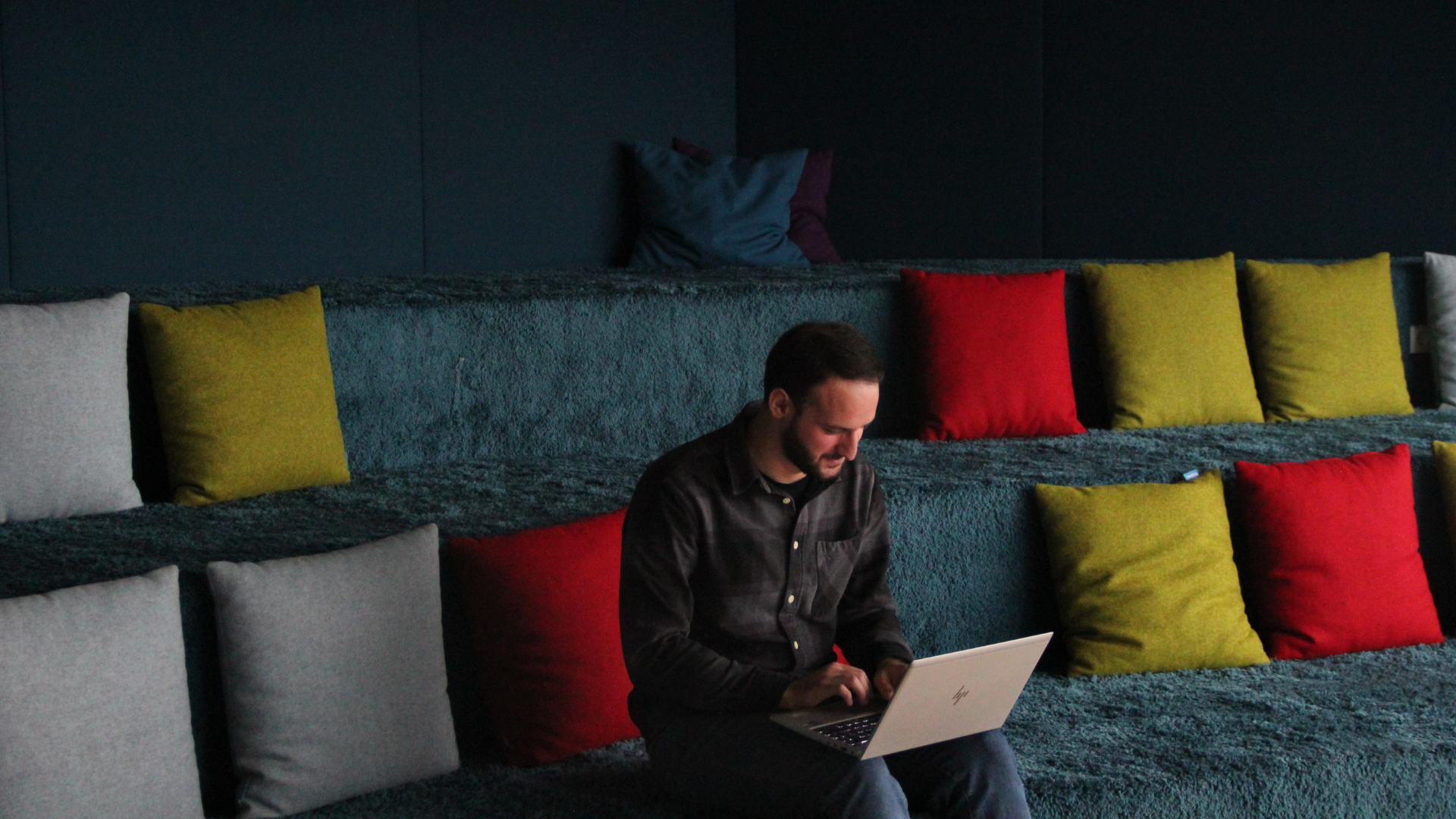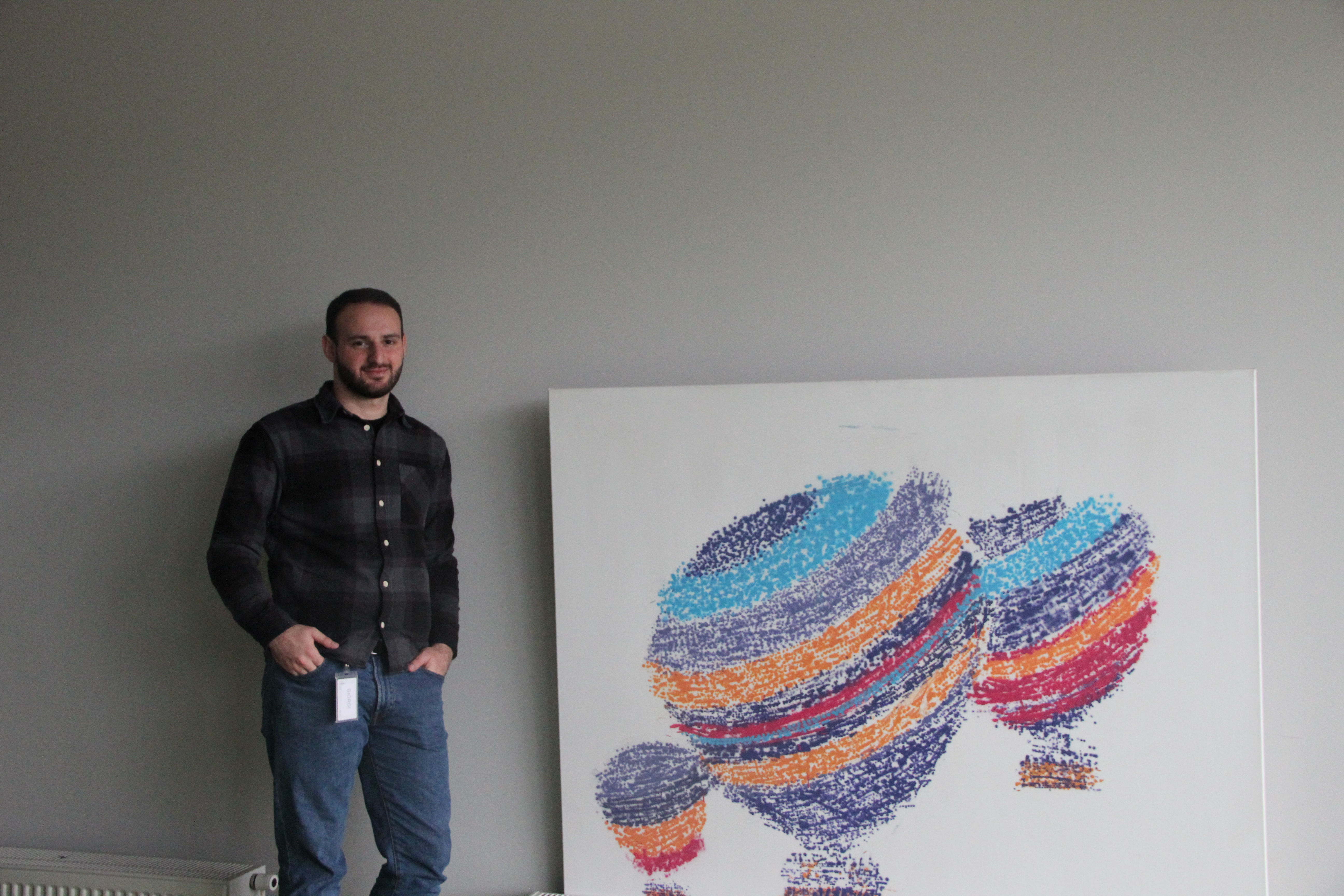Giorgi Shakulashvili is one of the recent alumni of the Digital Learning Games master programme from the School of Digital Technologies. Today Giorgi lives in Tallinn, works in the famous telecommunication company Telia Eesti and can’t imagine his daily life without digital games. Is Giorgi working on the creation of the games or just adores playing them? Let’s find out in our interview!

Giorgi, how did you start your studies in Tallinn University’s School of Digital Technologies?
After getting my bachelor’s degree in the field of computer science in Tbilisi State University I started to work in a telecommunication company. By that time my older brother encouraged me to take a look at the study programmes which Baltic States could offer, as my brother already studied in Latvia and had a good experience with it. I heard about Estonia before as a very digitally advanced country and found really interesting master programmes in Tallinn University. Despite that, I really didn't want to change my lifestyle, leave my friends and family and move to another country. But then I decided to apply and got the scholarship! That time I thought it was a chance which I should not miss, so I didn’t!
Brave decision! Which main thing of the Digital Learning Games study programme caught your eye mostly?
Digital Learning Games seemed very interesting to me. I wanted to learn something practical and fun! Games have a very big role in my life. I love to play and relax, communicate with other people and find new friends. Coming with the background of a programmer, I now had the opportunity to do something fun and creative such as creation of digital learning games.

Have you worked on some interesting projects during your studies in TLÜ? Please tell a little about them.
We had a lot of projects. For example, once we created a game about geography. It was like a puzzle and students had to assemble it. We worked on this for a very long time, added features and so on. For example, every time you would put the puzzle part correct you would get interesting information about that country. We were creating exactly a Digital Learning Game: a game that is fun, but at the same time has an educational component in it.
Also in the frame of “ELU” project (“LIFE” project) we had a chance to use our game development skills. We worked with students from other faculties as well, which was really nice experience, as we came from different fields and created something valuable together. In collaboration with the students of the Law faculty we created a cyber game from scratch!
One of my favorite projects was my thesis. I always noticed that people who play games together are more emotionally connected. Nowadays there are a lot of possibilities in offices, where workers can stay after work and play together. That helps new workers to communicate with colleagues and integrate them to the team faster. So I thought that the idea of implementing games in our daily life could be my thesis topic. I wanted to change the idea that games are just for fun. Some people think that games are bad and they only distract you. But maybe other things are distracting you much more? your phone, bad thoughts… Why can’t we see the beneficial side of the games?
What does gamification mean for you?
For me it’s a way to make something useful and meaningful by adding creative features.
Which features should a good digital learning game have?
It must be fun! Always. Without fun it’s boring and it is against the rules of game creation. If it's a learning game, it must be really fun to motivate you to learn. Also the good game should not put you in a struggle. Nobody says: “ Ah, when will this game finish?”. Because games are for enjoyment! The goal of a game developer is to make it fun and useful at the same time.
While being In Estonia, you have worked in Ericsson telecommunication company and now you are in Telia Eesti. Please tell what exactly do you do?
During my studies in TLÜ we had a task to find a company where we can have an internship. Thanks to my teachers I had a chance to look at options also in the IT sphere. So I decided to go to the famous Swedish telecommunication company Ericsson and became there an integration engineer intern. Interesting fact is that actually it was then when I got the idea of my future thesis topic. There was a video game which was telling new workers about the history of the company in a very dynamic and fun way. This game was covering the whole history of the Ericsson family starting from wire connections to digital networks. When I saw the game I immediately contacted the developer and asked permission to show it in the class. This was another great example of how digital learning games can be useful for employees.
Now I work in telecommunication company Telia Eesti as a DevOps engineer. I am responsible for the smooth operation of a company's IT infrastructure.

How do you use skills gained while studying in the School of Digital Technologies in your daily life?
I use a lot of programming languages which I learnt in TLÜ. My faculty showed me how useful games can be and what tools I can use to make them engaging and cool. It's also nice to play games not only as a user, but also as a professional who knows how they are created.
What problems do you see in the digital world nowadays and how can we solve them?
Digital industry grows super fast. For example, the restrictions connected with COVID-19 put us in a situation where even people who had poor knowledge of digital services had to somehow deal with it at some point. And that brought with itself also a high level of cyber threats. Today there are so many different social media platforms, online applications and websites and you really have to be careful while using them.
What would you advise to the new students of the Digital Learning Games master programme?
Be brave and ambitious, but also realistic. Even though teachers support us in every step, it's important to always rely on yourself and take as much responsibility as you can handle!
Source: Tallinn University webpage
Find YOUR study programme from our programme's page.
Read more blog posts:
